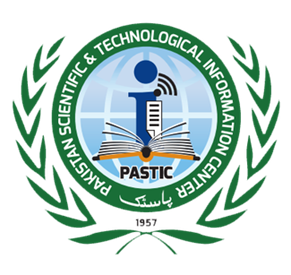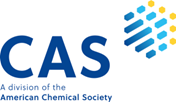Preparation of Manuscript
DEVELOPMENTAL MEDICO-LIFE-SCIENCES is a member of ‘International Committee of Medical Journal Editors’(ICMJE) and abides by ‘The Uniform Requirements for Manuscripts Submitted to Biomedical Journals’ available at http://www.icmje.org/urm_main.html
Submission Checklist
- Read the Aims & Scope to gain an overview and assess if your manuscript is suitable to be published in this journal.
- Use the Microsoft Word to prepare your manuscript. Times New Roman 10 font size 1 line spacing.
- Make sure that issues about publication ethics, copyrights, authorship, figure formats, data, and references have been understood and appropriately considered.
- Ensure that all authors have approved the contents of the submitted manuscript.
- Do not write Authors names or affiliation details in the submitted manuscript we follow double blind peer review policy .
- Make sure to attach Authorship form along with their afflitaions and contributions in the study.
- Article without authorship form will automatically be rejected one remainder email will be given.
- Ethical Review Letter (IRB letter) must be submiited incase of Original Article if no Ethical approval required than must be stated properly.
Failure to follow above guidelines will automatically reject the manuscript
MANUSCRIPT SUBMISSION OVERVIEW
Type of Publications:
‘DEVELOPMENTAL MEDICO-LIFE-SCIENCES ’ has no restrictions on the length of manuscripts, provided that the text is concise and comprehensive. Full experimental details must be provided so that the results can be reproduced. ‘DEVELOPMENTAL MEDICO-LIFE-SCIENCES ’ requires that authors publish all experimental controls and make full datasets available where possible.
The manuscripts submitted to ‘DEVELOPMENTAL MEDICO-LIFE-SCIENCES ’ should neither have been published before nor be under consideration for publication in another journal. Duplicate submission, if detected, will be dealt with the journal ethical committee.
The main article types are as follows:
- Original Research Articles: The journal considers all original research manuscripts provided that the work reports scientifically sound experiments and provides a substantial amount of new information. Authors should not unnecessarily divide their work into several related manuscripts, although Short Communications of preliminary, but significant, results will be considered. Quality and impact of the study will be considered during peer review.
- Review Articles: These provide concise and precise updates on the latest progress made in a given area of research or on a single aspect of clinical practice. Systematic reviews should follow the HEC or PMDC guidelines.
- Preprints and Conference papers: ‘DEVELOPMENTAL MEDICO-LIFE-SCIENCES ’ does not accept/publish preprint and conference proceedings. However, expanded and high-quality conference papers can be considered as articles if they fulfil the following requirements:
(1) the paper should be expanded to the size of a research article;
(2) the conference paper should be cited and noted on the first page of the paper;
(3) if the authors do not hold the copyright of the published conference paper, authors should seek the appropriate permission from the copyright holder;
(4) authors are asked to disclose that it is a conference paper in their cover letter and include a statement on what has been changed compared to the original conference paper.
‘DEVELOPMENTAL MEDICO-LIFE-SCIENCES ’ does not publish pilot studies or studies with inadequate statistical power.
SUBMISSION PROCESS
Manuscripts for ‘DEVELOPMENTAL MEDICO-LIFE-SCIENCES ’ should be submitted through the online submission system at https://dmlsjournal.com/index.php/January2024/submission . The submitting author, who is generally the corresponding author, is responsible for the manuscript during the submission and peer-review process. The submitting author must ensure that all eligible co-authors have been included in the author list and that they have all read and approved the submitted version of the manuscript. To submit your manuscript, register and log in to the OJS. All co-authors can see the manuscript details in the submission system if they register and log in using the e-mail address provided during manuscript submission.
MANUSCRIPT PREPARATION
Research Article manuscripts should comprise:
- Front matter: Title, Author names list, Qualifications, Affiliations (Designation, Department, University), E-mails, Structured Abstract, Key words.
- Main Body: Introduction, Objective, Literature Review, Research Methodology and Design, Results, Discussion, Limitations, Conclusions, Future Direction
- Back matter: Acknowledgments, Author Contributions, Conflicts of Interest, References.
Front Matter
These sections should appear in all manuscript types
- Title: The title of your manuscript should be concise, specific and relevant. It should identify if the study reports (human or animal) trial data, or is a systematic review, meta-analysis or replication study.
- Author List and Affiliations: Authors' full first and last names must be provided. The initials of any middle names can be added. The PubMed/MEDLINE standard format is used for affiliations: complete address information including city, zip code, state/province, country, and all email addresses. At least one author should be designated as the corresponding author, and his or her e-mail address and other details should be included at the end of the affiliation section.
- Abstract: The abstract should be a total of about 200 words maximum. The abstract should be structured with headings:
- Background: Place the question addressed in a broad context and highlight the purpose of the study.
- Methodology: Describe briefly the main methods or treatments applied. Include any relevant preregistration numbers, and species and strains of any animals used.
- Results: Summarize the article's main findings; and
- Conclusion: Indicate the main conclusions or interpretations.
The abstract should be an objective representation of the article: it must not contain results which are not presented and substantiated in the main text and should not exaggerate the main conclusions.
- Abbreviations should be defined in parentheses the first time they appear in the abstract, main text, and in figure or table captions and used consistently thereafter.
- Preregistration: Where authors have preregistered studies or analysis plans with trials registration agencies, links to the preregistration must be provided in the manuscript.
- Key words: Three to ten pertinent key words need to be added after the abstract. We recommend that the key words are specific to the article, yet reasonably common within the subject discipline. Try to use MeSH terms.
Main Body:
- Introduction: The introduction should briefly place the study in a broad context and highlight why it is important. It should define the purpose of the work and its significance, including specific hypotheses being tested. The current state of the research field should be reviewed carefully and key publications cited. Please highlight controversial and diverging hypotheses when necessary.
- Objective of Study: briefly mention the main aim of the work and highlight the main conclusions. Keep the introduction comprehensible to scientists working outside the topic of the paper?
- Literature Review: the literature review must be brief and relevant to work. This part of the study must consist of at least 12 references from most recent studies conducted in the most recent last 5 years.
- Research Methodology and Design: They should be described with sufficient detail to allow others to replicate and build on published results. New methods and protocols should be described in detail while well-established methods can be briefly described and appropriately cited. Give the name and version of any software used and make clear whether computer code used is available. Include any pre-registration codes.
- Results: Provide a concise and precise description of the experimental results, their interpretation as well as the experimental conclusions that can be drawn.
- Discussion: Authors should discuss the results and how they can be interpreted in perspective of previous studies and of the working hypotheses. The findings and their implications should be discussed in the broadest context possible and limitations of the work highlighted. Future research directions may also be mentioned. This section may be combined with Results.
- Conclusions: This section is not mandatory, but can be added to the manuscript if the discussion is unusually long or complex.
- Patents: This section is not mandatory, but may be added if there are patents resulting from the work reported in this manuscript.
- References: References must be numbered in order of appearance in the text (including table captions and figure legends) and listed individually at the end of the manuscript. These should be typeed in superscript. Maximum References: Original Article 25, Case Report 10, Reviews 40. The author should ensure reference to locally published studies by doing proper literature search. It may not be possible for the editor and reviewers to check the accuracy of all reference citations. To minimize such errors author should verify references against the original documents. The References should be written in Vancouver style as per "Recommendations for the Conduct, Reporting, Editing and Publication of Scholarly work in medical journals. Updated Dec. 2015. Available at: http://icmje.org/recommendations/".
List all authors when there are six or fewer. If there are seven or more list the first six followed by ”et al” Add DOI number of those references where it is available. Examples:--
a. Şeker YT, Sözer N. Chronic post-hypoxic myoclonus in medical sciences: Lance
Adams Syndrome. developmental. medico-life-sciences 2019;23(1):33-36
- Grewal A. Dexmedetomidine: New avenues. J Anaesthesiol Clin Pharmacol 2011;27:297–302. doi: 10.4103/0970-9185.83670.
- Reference from the books should have Authors name and initials, full title of cited article, complete title of book, Name of Editors, address (city) the publisher, first and last page numbers and finally the year of publication, such as:-
Haroon TS. How to plan a scientific study, ‘Medical Writing’ (second edition), Jawaid SA, Jafary MH & Zuberi SJ (Eds), Pakistan Medical Journalists Association, Karachi, Pakistan. 1993;pp 1-13. - In case of multicentre study or trial, the reference should be given as Name of the Group or of study, exact title of the study, full results or partial results, Name of the Journal, Volume and Number, pages and the year. For example:-
TIMI Study Group: Comparison of invasive and conservative strategies after treatment with intravenous tissue plasminogen activator in acute myocardial infarction. Results of the TIMI Phase-II trail. N Eng J Med. 1989;320:618-627.
Preparing Figures, Schemes, and Tables
- File for Figures and schemes must be provided during submission in a single zip archive and at a sufficiently high resolution (minimum 1000 pixels width/height, or a resolution of 300 dpi or higher). Common formats are accepted, however, JPG, JPEG, EPS, and PDF are preferred.
- All Figures, Schemes, and Tables should be inserted into the main text close to their first citation and must be numbered following their number of appearance (Figure 1, Scheme 1, Figure 2, Scheme 2, Table 1, etc.).
- All Figures, Schemes, and Tables should have a short explanatory title and caption.
- All table columns should have an explanatory heading. To facilitate the copy-editing of larger tables, smaller fonts may be used, but no less than 8 pt. in size. Authors should use the Table option of Microsoft Word to create tables.
- Tables must not be sent in non-editable picture format.
- Authors are encouraged to prepare figures and schemes in color (RGB at 8-bit per channel). There is no additional cost for publishing full-color graphics.
- Figures and pictures must be sent as separate attachments in high resolution.
Clinical trials registry:
‘DEVELOPMENTAL MEDICO-LIFE-SCIENCES ’ favors registration of clinical trials. The journal would publish clinical trials that have been registered with a clinical trial registry that allows free online access to public. Registration in the following trial registers is acceptable: http://www.ctri.in/; http://www.actr.org.au/ ; http://www.clinicaltrials.gov/ ; http://isrctn.org/ ; http://www.trialregister.nl/trialreg/index.asp ; and http://www.umin.ac.jp/ctr.
The clinical trial registry must allow unhindered online access to public without charging any fees.
Authorship criteria:
- Authorship credit should be based only on substantial contributions to each of the three components mentioned below:
- Concept and design of study or acquisition of data or analysis and interpretation of data;
- Drafting the paper or revising it critically for important intellectual content; and
- Final approval of the version to be published.
- Agreement to be accountable for all aspects of the work.
- Participation solely in the acquisition of funding or collection of data, or general supervision does not justify authorship.
- Each contributor should have participated sufficiently in the work to take public responsibility for appropriate portions of the content of the manuscript.
- The order of names of the authors be based on the relative contribution of the contributor towards the study and writing the manuscript.
- Once submitted the order cannot be changed without written consent of all the contributors. The biomedical journal generally prescribes a maximum number of authors for manuscripts depending upon the type of manuscript, its scope and number of institutions involved (vide infra). The authors should provide a justification, if the number of authors exceeds these limits. Details on role of authors are available at http://www.icmje.org/recommendations/browse/roles-and-responsibilities/defining-the-role-of-authors-and-contributors.html
Retraction Policy
Published articles may be retracted if:
- The paper has major scientific error invalidating the conclusions of the article, for example if evidently findings are unreliable, due to misconduct (e.g. data fabrication) or unintentional error (e.g. miscalculation or experimental error).
- Where the findings have previously been published elsewhere without proper cross-referencing, permission or justification (i.e. cases of redundant publication).
- Plagiarism (appropriation of another person's ideas, processes, results, or words without giving appropriate credit including those obtained through confidential review of others' manuscripts).
- Inappropriate authorship (e.g., "guest" authorship; see COPE discussion document 'What constitutes authorship?').
- Unethical research has been reported.
Retraction process
In accordance with COPE guidelines, the journal adopts the following retraction process:
- All matters regarding a potential retraction are considered by the journal editor.
- The journal editor should follow the step-by-step guidelines according to the COPE flowcharts (including evaluating a response from the author of the article in question).
- The editor's findings are sent to Ethical Review Committee (ERC) for review.
- ERC consists of a Chairperson and three members out of senior members of journal editorial team.
- The final decision is communicated to the author and, if so decided by the ERC, to any other relevant bodies, such as the author's institution.
- The retraction statement is then posted online and published in the next available issue of the journal (see below for more details of this step).
- ERC decisions are considered final and cannot be challenged in a court of law. Any complaint against the decision will be addressed to ERC for reconsideration.
- Retraction:
8.1. If the paper has been published in early issue of the journal, we shall issue a retraction statement which should be published separately but should be linked to the article being retracted. The article should be retained online in order to maintain the scientific record.
8.2. Retraction announcement and the title of the original article included will be published in the next possible issue, with pagination in the contents list.
8.3. The text of the retraction should explain why the article is being retracted in print as well as in the link to the online paper.
Deletion Policy
Developmental Medico-Life-Sciences Journal follows International Association of Scientific, Technical and Medical Publishers guidelines on retractions and preservation of the objective record of science. Deletion of the online version of the paper will only be allowed:
- In case of a violation of the privacy of a research subject
- The paper has errors to which a member of the general public might be exposed and if followed or adopted, would pose a significant risk to health; or
- If a defamatory comment has been made about others in the relevant field or about their work.
- If an accepted article is to be retracted, because of gross errors, has been accidentally submitted twice or violates professional ethical code.
However, a bibliographic information about the deleted article should be retained for the scientific record, and an explanation given for deletion.
Withdrawal Policy
An accepted article may be withdrawn, if it is the uncorrected, unedited, non-typeset version before publication. If an accepted article is to be retracted because, for example, it contains errors, has been accidentally submitted twice or infringes a professional ethical code of some type, it may be deleted and replaced with a withdrawal statement. Manuscript Processing Fee will not be refunded in any case.
- Where there has been a violation of the privacy of a research subject;
- Where there are errors to which a member of the general public might be exposed and if followed or adopted, would pose a significant risk to health; or
- Where a clearly defamatory comment has been made about others in the relevant field or about their work.
Principal Contact
Prof.Dr. Naveed Shuja
Dean, Lahore University of Biological & Applied Sciences (UBAS)
Phone+923334205687
Support Contact
Arslan Shuja
PhD. Scholar
Institute of Molecular Biology and Biotechnology (IMBB), CRiMM, The University of Lahore, Lahore Pakistan.
Phone+923354568416
















